The Second CLIVAR-FIO Summer School and the 11th Training Course of UNESCO/IOC-ODC Center Opened in Qingdao
On August 15, 2022, the Second CLIVAR-FIO Summer School and the 11th Training Course of UNESCO/IOC-ODC Center opened in Qingdao West Coast New Area. The training was co-organized by the First Institute of Oceanography of the Ministry of Natural Resources (FIO, MNR) and the Administration Committee of Qingdao West Coast New Area. The Office of Climate Variability and Predictability Project (CLIVAR) of the World Climate Research Programme (WCRP) and the UNESCO/IOC Regional Training and Research Center on Ocean Dynamics and Climate (UNESCO/IOC-ODC) were responsible for the execution. Taking into account the impact of the pandemic, this international training was conducted both online and offline. Sun Shengzhi, a second-level inspector of the International Cooperation Department of the Ministry of Natural Resources, Mike Sparrow, Director of the World Climate Research Program Secretariat, Somkiat Khokiattiwong, former Vice Chairman of UNESCO Intergovernmental Oceanographic Commission (IOC) and former Chairman of the IOC Sub-Commission for the Western Pacific (WESTPAC), Qiao Fangli, Deputy Director of FIO, MNR, Zhao Yingmin, Director of the Ocean Development Bureau of the Qingdao West Coast New Area, and Professor Jose Santos, Director of the International CLIVAR Project Office, attended the opening ceremony.
In his speech, Sun Shengzhi warmly welcomed all the experts and students. He stated that the Ministry of Natural Resources had always strongly supported and encouraged international training activities conducted by CLIVAR and the UNESCO/IOC-ODC Center, and would actively raise and coordinate resources in the future to support the long-term institutionalized operation of the training courses. He hoped that international training, cooperation research, and other activities, would help build the capacity of countries in the field of ocean and climate, promote multi-national collaboration, and advance collaborative innovation between countries.
Director Mike Sparrow introduced the World Climate Research Programme (WCRP), stating that it would continue to lead the way in solving cutting-edge scientific issues related to the climate system based on over 40 years of successful experience. WCRP would continue to strengthen its technological cooperation with FIO, conduct international training in the field of ocean and climate, and promote cooperation research on ocean-climate-related scientific issues. Director Sparrow expressed gratitude for China's positive contributions to the field of ocean and climate.
Somkiat Khokiattiwong stated in his speech that the training courses and activities related to ocean and climate conducted by CLIVAR and UNESCO/IOC-ODC Center would directly serve the member countries of the IOC Sub-Commission for the Western Pacific (WESTPAC), which would help promote the capacity building of the Western Pacific region and improve the scientific research capacity of related countries. He expressed gratitude for China's leading role in this regard.
Vice Director Qiao Fangli introduced the "Decade of Ocean Science for Sustainable Development" and the achievements of previous training courses. The UNESCO/IOC-ODC Center has successfully held 10 international training courses, receiving over 1,000 applications from 66 countries. Ultimately, 522 students from 51 countries were selected to participate in the first ten training courses, with the vast majority being international students. The development of international training has promoted the capacity building of surrounding countries and regions of the Asia-Indo-Pacific Region in the field of ocean and climate prediction, has drawn wide international attention, and is praised by the students. CLIVAR and the UNESCO/IOC-ODC Center will continue to conduct international training.
Director Jose Santos introduced the theme and specific course arrangements for the second CLIVAR-FIO Summer School.
For this training, a total of 17 experts from countries such as China, the United Kingdom, the United States, France, and Germany were invited to teach the students. There were a total of 148 students from 33 countries, including China, the United Kingdom, Russia, Spain, France, Sweden, South Korea, Japan, Sri Lanka, India, Thailand, Malaysia, Egypt, Kenya, South Africa, Argentina, and Mexico, participating in the training. This training session is rich in content, including observations and data analysis of oceanic and atmospheric turbulence, the dynamic mechanisms and interactions with large-scale circulation, numerical simulations, the impact of oceanic turbulence on climate change modeling and prediction, climate prediction and estimation, and Earth system model diagnosis. The training course proceeded in various forms, such as expert lectures, online live streaming, online tutoring for Q&A and discussion, and group discussions. Through training, opportunities for ability improvement and research cooperation will be provided for young climate and ocean scholars, especially for young scholars from developing countries, further enhancing China's international influence in the field of global ocean and climate research.
In 2018, the First Institute of Oceanography of the Ministry of Natural Resources signed a five-year cooperation agreement with the World Climate Research Programme on establishing the CLIVAR Summer School. According to the agreement, the CLIVAR Summer School will open once every two years in cooperation with the UNESCO/IOC-ODC Center. Building upon the existing ocean-based training programs of the UNESCO/IOC-ODC Center, the CLIVAR Summer School utilizes resources and advantageous networks of the WCRP climate scientists to offer climate training courses globally. In 2018, CLIVAR and UNESCO/IOC-ODC Center jointly opened a training course, which received unanimous praise from participating students and international lecturers. The joint organization of the training course further integrated the resources of CLIVAR and UNESCO/IOC-ODC Center, providing young scientists with a more comprehensive learning program. This is of great significance in promoting and deepening international cooperation in the field of ocean and climate.
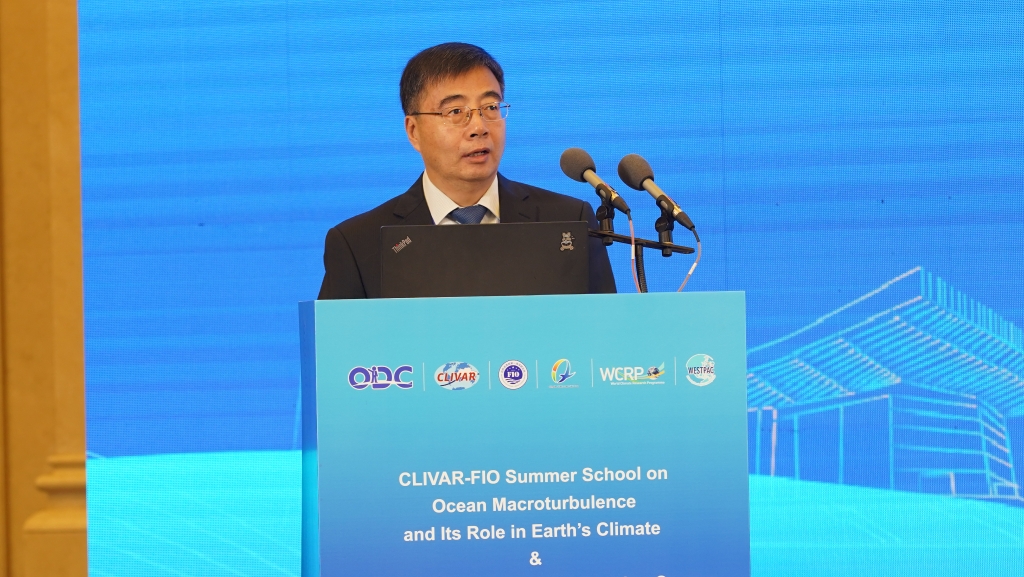
Speech by Inspector Sun Shengzhi
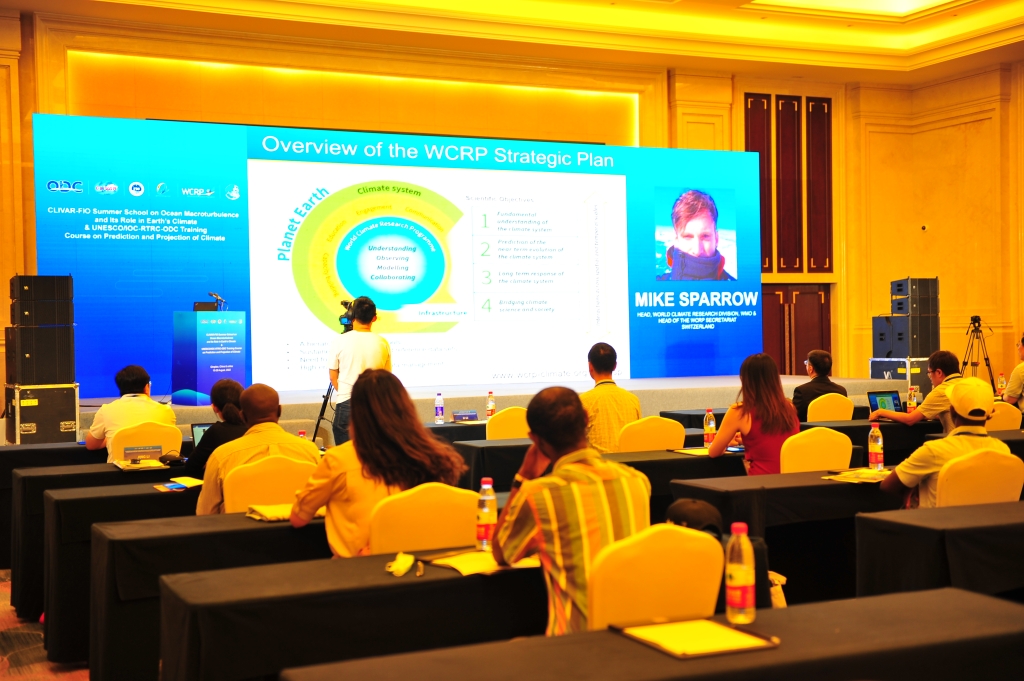
Speech by Director Mike Sparro
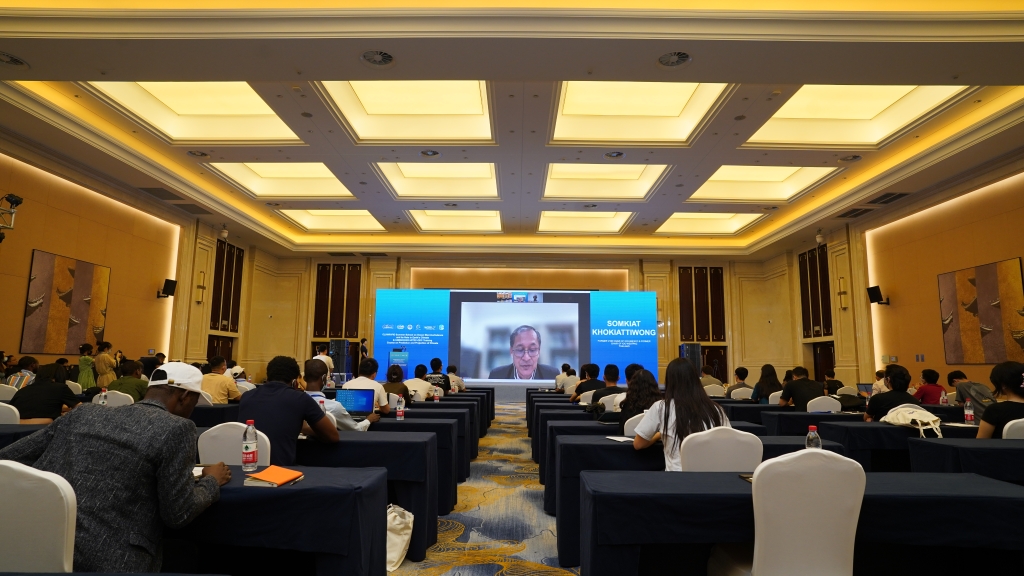
Speech by Somkiat Khokiattiwong
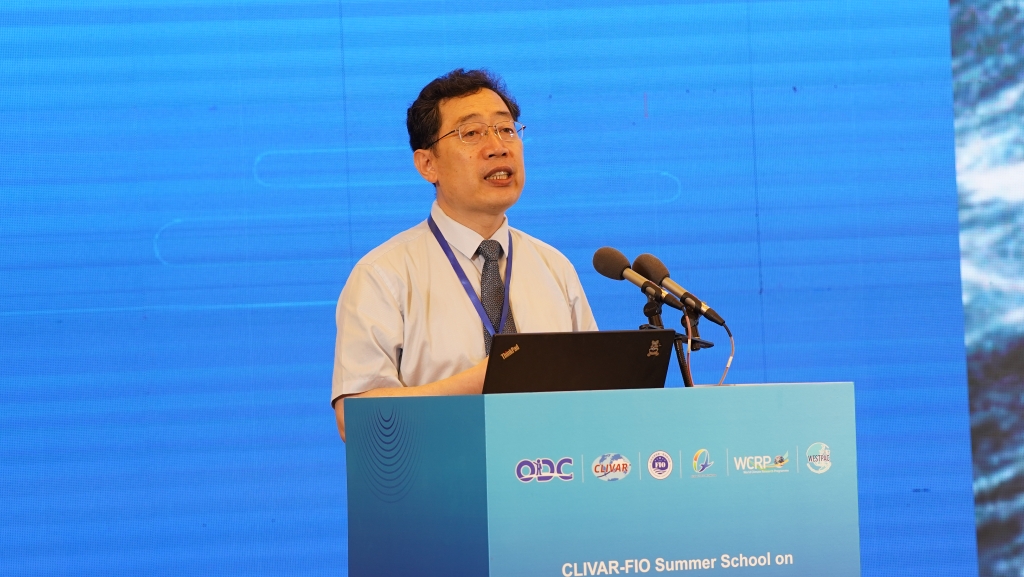
Speech by Vice Director Qiao Fangli
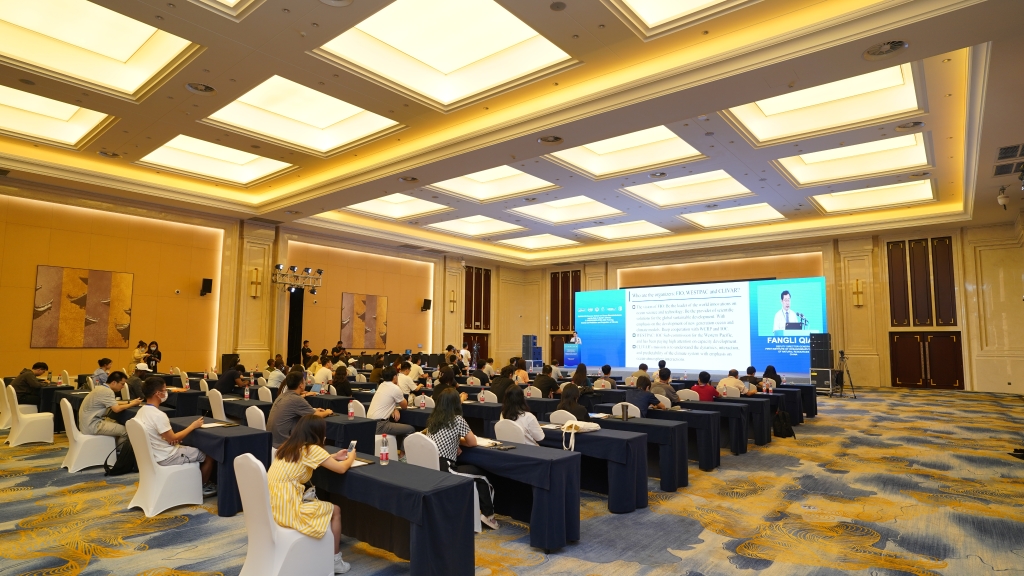
Training Site

Group photo of Participants Attending the Training


